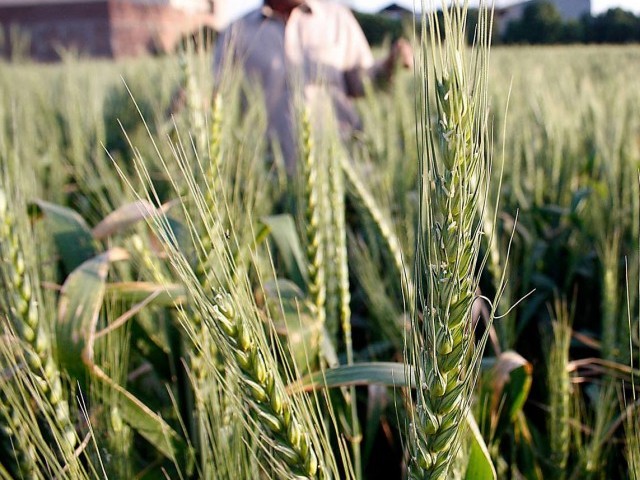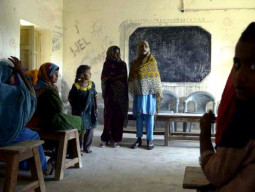
In the arid landscapes of DI Khan district in Khyber-Pakhtunkhwa (K-P), an initiative to train local farmers in drip irrigation systems is yielding remarkable results.
This project, spearheaded by the International Water Management Institute (IWMI), has not only piqued the interest of the locals but is also transforming vast, previously fallow farmlands due to severe water scarcity.
Amjad Jamal, the Communication Specialist at IWMI, sheds light on the origins of this initiative. “IWMI initiated drip irrigation training at Kot Daulat in the DI Khan district with the primary goal of introducing advanced technology to combat desertification resulting from climate change.”
Kot Daulat finds itself among the 81 villages of Kolachi Tehsil in DI Khan, where the acute shortage of water has long been a vexing problem for residents.
During a recent visit to DI Khan to assess the progress of the project, it became evident that a substantial number of locals had embraced solar-powered drip irrigation technology for their fields.
Some even extended its use to their date orchards and expressed immense satisfaction with the results.
Amjad Jamal explains that during interactions with project team members, locals revealed their newfound enthusiasm for adopting this technology.
They had witnessed positive yields and decided to invest in drip irrigation systems to cultivate their lands, transforming idle plots into productive farmlands.
Under the IWMI project, solar-operated water pumps were installed in 22 households, alongside the provision of plastic tanks for water storage and distribution through drip irrigation. This transformation in technology has shifted the mindset of the local population. Previously reliant on extensive water supplies to flood their fields for irrigation, they now recognize the benefits of drip irrigation for growing vegetables and crops efficiently.
One resident of Kot Daulat, Saifur Rehman, shared his story of transformation. He emphasized that despite having vast land and spacious homes, severe water scarcity had hindered their ability to utilize these resources for livelihood and domestic food production.
The limited water supply, primarily from Gomal Zam Dam via canals once a year, was insufficient for crops beyond wheat.
Moreover, the decreasing rainfall due to climate change further exacerbated their water woes, leading many to leave their farming land idle.
The introduction of drip irrigation farming techniques has brought about a positive turnaround in their lives. Saifur Rehman and many others in the community are now benefiting from this innovative technology.
Amjad Jamal also highlighted that the project not only provided training in drip irrigation but also educated beneficiaries about crop rotation. Previously focused solely on wheat cultivation, the locals have diversified their crops to include cotton, maize, sunflower, and various vegetables, resulting in increased earnings.
Published in The Express Tribune, September 25th, 2023.



-(14)1720679028-0/(image-blakelively-on-Instagram)-(14)1720679028-0-165x106.webp)

1731028448-0/Untitled-design-(37)1731028448-0-165x106.webp)












COMMENTS
Comments are moderated and generally will be posted if they are on-topic and not abusive.
For more information, please see our Comments FAQ